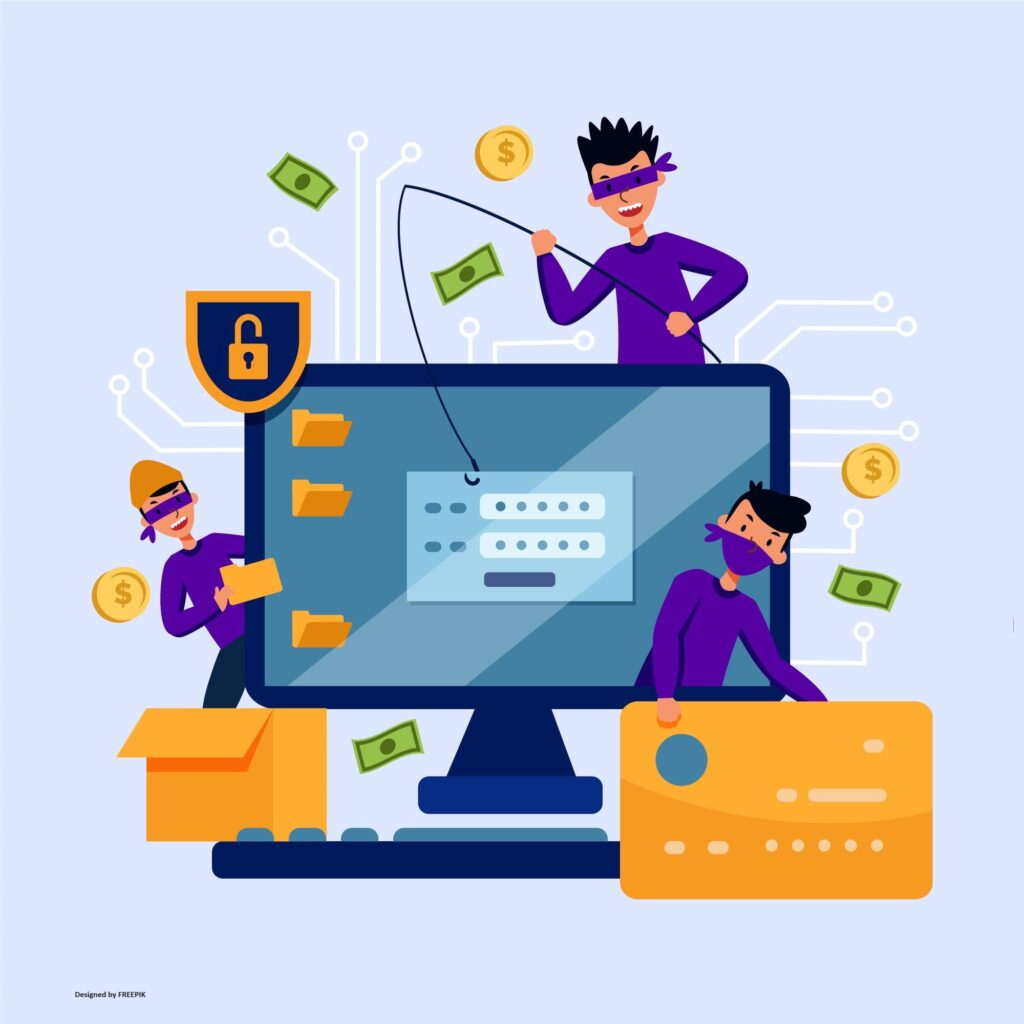You’ve had a great idea, did your research, and invested your money wisely in starting your business. You continue to work your butt off, and soon enough your company begins to expand. It’s all good. However, as your company grows, have you considered whether your cybersecurity measures are scaling with it?
For many small businesses, growth is really an exciting time, but with this expansion come more vulnerability to online dangers. As your company expands, you will inevitably have more data, more customers, and more digital tools to deal with. Each step moving forward opens up doors to new vulnerabilities, and if the proper security measures aren’t taken, the company you worked so hard to grow, could easily be at risk.
But don’t worry, I’ll explain the common cybersecurity risks for growing businesses, and offer scalable cybersecurity solutions to protect your company as it expands. From securing customer data to managing third-party vendor risks, you’ll discover essential steps to keep your business secure as it expands. So let’s get to it!
Jump To:
Toggle
Why Growing Companies Are at Greater Risk
Cybersecurity for company growth is so important. When your business expands, you naturally will accumulate more data and become more reliant on digital tools, and this can make cybersecurity increasingly complex.
With the addition of each new employee, system or technology, vendor, or software solution, opens up a possible entry point for cybercriminals. Here are some of the most critical risks that come when your business begins to grow.
1. More Consumer Data
The more your business grows, the more your customer base expands, and so does the amount of sensitive information you collect and handle. Data, such as customer payment information, addresses, and personal details, can become really attractive targets for cybercriminals, especially if your cybersecurity isn’t evolving to protect that data.
2. Expanded Digital Infrastructure
When a company grows, it often means adding new systems, such as cloud services, software platforms, or e-commerce systems, and networks. Each additional digital tool or platform you integrate can create more points of vulnerability. This is why your IT and cybersecurity systems and teams must be adequately equipped to manage this increased complexity.
3. Growth Can Outpace Cybersecurity
If your company rapidly grows, focus may tend to be on other areas, and cybersecurity can sometimes take a back seat. A lot of businesses tend to focus on operational growth—hiring more people, opening new locations, or expanding online sales, all the while putting cybersecurity on the back burner. Your cybersecurity measures must be up-to-date to keep up with your company’s growth to avoid potential gaps in defense.

Securing Customer Data and Company Networks
Jeff Bezos once said, one of the most important things any company can do is to build trust. Customer trust is a cornerstone of any business’s success, and it’s especially vital as you grow. As your company begins to grow, securing sensitive customer data—such as payment details, contact information, and order history—is non-negotiable.
As expansion continues, data security becomes more critical, and also more challenging. Here are some essential measures on how to secure customer data as your business grows.
1. Data Encryption
Encryption is the process of scrambling data or information, so even that even if cybercriminals manage to intercept your data, they won’t be able to read it without the proper decryption keys. It’s essential that you use strong encryption for both data at rest, which stored data, and data in transit, which is data that’s being transmitted across the internet. This will ensure that sensitive information, like payment details and customer records, are properly safeguarded.
2. Network Security
We’ve already established that securing data become an integral part of your cybersecurity strategy as your business grows, and securing your digital network becomes a priority. This is because as your data grows, so does your network.
You can use firewalls and intrusion detection systems to prevent unauthorized access to your internal systems. Network segmentation is another recommended option, this is where you divide your network into smaller, separate sections. This limits attacks from spreading and ensure that even if one part of the network is breached into, the entire system isn’t at risk. Makes sense right.
3. Regular Data Backups
A very simple, but extremely important step. Create regular backups of your critical data to ensure recovery in case of an attack. Cyberattacks like ransomware can lock you out of your own computers and systems and demand money in exchange for you to get access to it again. Regular backups protect against these attacks, allowing you to quickly restore lost or compromised data without having to pay the ransom.
4. Cloud Security
Many businesses that are expanding, tend to rely on cloud-based platforms to store and manage data. It is important to select a cloud service that offers end-to-end security, secure access controls, and strong data protection features to keep your data safe. Cloud platforms should also have tools for logging and tracking to see if any suspicious behavior is occurring.

Implementing Scalable Cybersecurity Solutions
As said before, as your company grows, so should your cybersecurity solutions. What worked for the business when it was small, may not be sufficient for a growing company with more data, users, and digital infrastructure. Implementing scalable cybersecurity solutions ensures you have strong defenses as your operations expand.
1. Cloud-based Cybersecurity Tools
Cloud-based tools are flexible and scalable, so you may adjust the security settings based on your current size and needs. These tools can scale up or down without requiring significant infrastructure changes, making them ideal for growing businesses. Cloud firewalls, secure email gateways, and automated malware detection systems are examples of scalable solutions that can protect your business at any stage of growth.
2. Managed Security Services Providers (MSSPs)
Consider outsourcing your cybersecurity needs to a managed security service provider, especially if you lack in-house expertise. Many small and mid-sized businesses may not have the budget or personnel to maintain a full in-house cybersecurity team, making MSSPs a cost-effective solution. These providers can manage everything from monitoring your network for threats to conducting regular security assessments and updates, ensuring your business remains secure as it grows.
3. Automated Threat Detection
As your company expands, manual monitoring of all systems becomes impractical or impossible. You can use tools that automatically detect and respond to threats to help you stay ahead of emerging threats. These automated tools can detect and respond to threats in real time. Modern tools use artificial intelligence (AI) and machine learning (ML) to identify suspicious patterns and behaviors, automatically neutralizing potential threats before they cause significant damage.
Managing Third-Party Vendor Risks
When a business grows, it will likely rely more heavily on third-party vendors for various services like payment processing, cloud storage, or IT support. While these vendors do provide critical services, they may also introduce additional cybersecurity risks. If a vendor’s security practices aren’t up to par, your business could become vulnerable to data breaches and cyberattacks through them. So consider the following:
Conduct Vendor Risk Assessments
Don’t just blindly allow the vendor to do their thing. On a regular basis, you should assess their cybersecurity practices to ensure they meet industry standards. This might include reviewing their certifications, requesting security audits, or verifying their compliance with data protection regulations such as GDPR or CCPA.
Third-Party Breaches
Even if your company is dotting all the I’s, and crossing all the T’s in terms of having strong cybersecurity measures in place, a breach at one of your vendors can still affect you. If a vendor has weak security, this can lead to hackers accessing your systems through them, exposing your data in the process. For example, in the case of Target’s infamous breach, attackers gained access through a third-party HVAC vendor. If this happens, always have a plan to respond.
Contractual Security Clauses
When signing contracts with vendors, it’s wise to make sure and cover all the bases. Include clauses that hold them accountable for maintaining cybersecurity standards. These agreements should outline their responsibilities in the event of a breach, including timely notification, liability for damages, and required security practices.

Steps to Take When Expanding Your Digital Platforms
Another consequence of a growing business, is a growing online presence. Whether it’s launching a new e-commerce platform, expanding into new markets, or integrating more digital tools, you’ll want to get it out there for all to see. But an increase in your digital footprint also brings with it more exposure to potential cyber threats. Here are steps to ensure your digital footprint remains secure:
1. Adopt a Security Framework
Implementing a recognized cybersecurity framework, such as NIST (National Institute of Standards and Technology) or ISO 27001, helps guide your security efforts as your company expands. A framework, if you’re wondering, is just a set of policies, procedures, and standards designed to protect an organization’s information assets from unauthorized access, use, disclosure, disruption, modification, or destruction.
These frameworks provide comprehensive best practices for managing and mitigating cybersecurity risks, ensuring that your company’s growth aligns with security protocols.
2. Employee Training
Your employees are the heart of your company, and are often the first line of defense in preventing cyberattacks. Provide regular training on identifying phishing emails, avoiding malware, and following proper security protocols. This can really go a long way to significantly reduce the risk of human error leading to a mishap.
3. Incident Response Plan
Just so you know, no system is 100% safe from cyber threats, no matter how good your security measures are. So it’s a good idea to have an incidence response plan in place. An incident response plan prepares your team to react quickly and effectively in case of an attack, minimizing damage and downtime. The plan should have clear steps for identifying and containing the breach, recovering data, and notifying affected parties, such as shareholders or law enforcement.
4. Conduct Regular Security Audits
I used to hate it when our IT department got audited, but the reality is, conducting periodic audits really helps you stay ahead of potential vulnerabilities. These audits should evaluate your current security measures, assess any new threats, and identify gaps that need to be addressed as your business grows.
Conclusion
With all the time, money, and hard work that you put into developing and growing your business, don’t let cybercriminals destroy it. As I’ve said before, as your company grows, your cybersecurity needs to grow alongside with it. Protecting customer data, managing third-party vendor risks, and implementing scalable solutions are necessary steps in safeguarding your expanding business.
By implementing strong security measures, managing vendor risks, and adopting scalable solutions, you can protect your company from cyberattacks and maintain customer trust. It’s not hard, and with a little effort it can be achieved. Good luck moving forward!
Key Points
- Growth brings new cybersecurity challenges, including more data and complex systems to protect.
- Implement scalable cybersecurity solutions like cloud-based tools and MSSPs to ensure your security grows with your business.
- Don’t overlook third-party vendor risks—make sure your partners have strong cybersecurity measures in place.
- Conduct regular audits and employee training to keep your defenses strong as your company expands.







